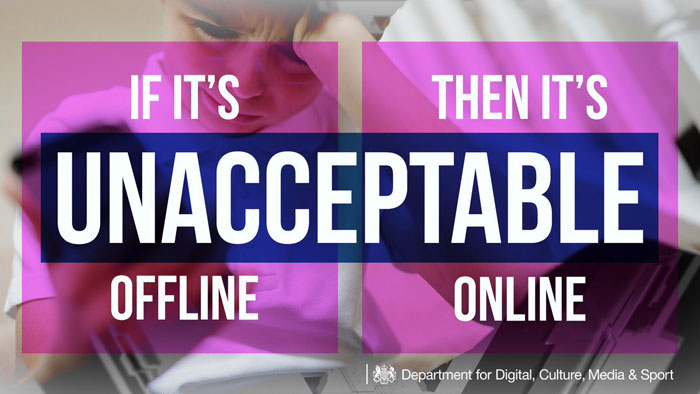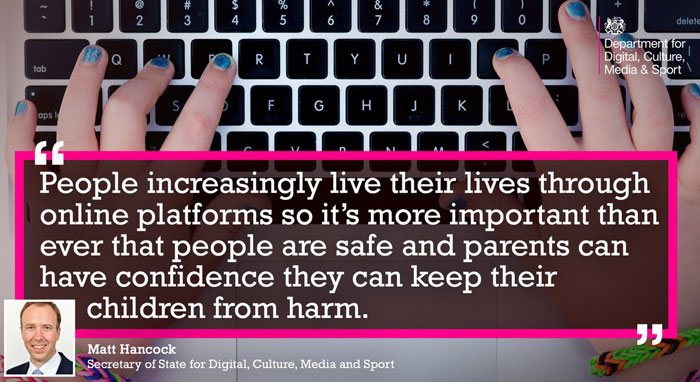At the weekend the UK government published a press release sharing its ideas about tackling "the full range of online harm". In brief, the government wants the UK to be "the safest place in world to be online," by directly tackling cyberbullying, child exploitation, extremism, and more. The government will work alongside social media companies, regulators, charities, educators, advertising companies, and other related technology companies to achieve its goals.

A consultation with the public found that the majority of internet users felt powerless to address online safety and that technology companies operate "without sufficient oversight or transparency". While the government admits several tech giants have made important steps to address these concerns recently it want to improve the situation over all platforms.
Department for Digital, Culture, Media and Sport (DCMS) Secretary of State, Matt Hancock, took part in an interview yesterday on The Andrew Marr Show. He said that 10 out of 14 of the largest social media firms declined to turn up to discuss internet safety with the government and that snub has spurred the government on in deciding to legislate.
Internet Wild West
"Digital technology is overwhelmingly a force for good across the world and we must always champion innovation and change for the better," said Mr Hancock. "At the same time I have been clear that we have to address the Wild West elements of the Internet through legislation, in a way that supports innovation. We strongly support technology companies to start up and grow, and we want to work with them to keep our citizens safe." He went on to say that freedom on the internet has to be balanced with the need for safety - just like our offline lives.

Of course the government needs a stick to gain compliance, after it has failed with a consensual approach to negotiating with the big social media firms. Hancock touched upon age verification being important to internet safety. Furthermore, he warned that online businesses like social media firms "could be fined up to 4 per cent of their global turnover under a data protection bill currently going through parliament," reports the Independent.






